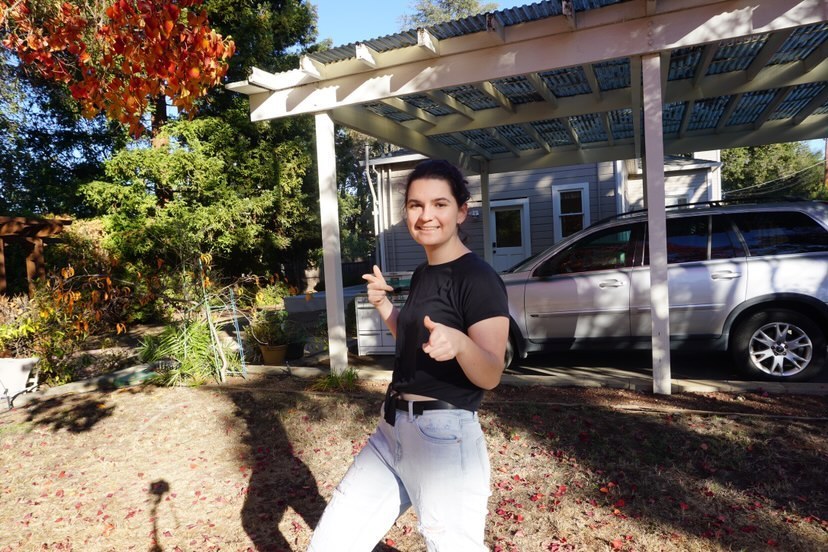Lauren Haragan
January 6, 2021
Senior Lauren Haragan contracted COVID-19 in July 2020 while working at a local grocery store. After tackling viral symptoms like the loss of her sense of smell and taste, she’s returned to work, now dealing with store customers who refuse to adhere to safety guidelines.
The grocery store Lauren Haragan works at chose to remain anonymous.
While clocking in for her shift at the grocery store one July morning, senior Lauren Haragan learned from her employers that her coworker had tested positive for COVID-19. Feeling congested on her ride home, Lauren feared her possible exposure.
“I was like, ‘I could have COVID-19, I could also have a cold,’” Lauren said. “Then I started losing my sense of taste and smell, and I thought, ‘This might not be too good.’”
Until she got tested, Lauren kept hoping that her symptoms were not COVID-related, but five days later, it was confirmed: She had contracted the virus. Lauren later learned that several other coworkers caught the virus as well, and the store temporarily shut down due to the spread.
Lauren immediately quarantined herself for ten days. In the small apartment on the second floor of her home, she drew, binged the entire Harry Potter series and finished online Health class.
Fortunately, however, her symptoms — congestion, cough, sore throat, body aches and a low-grade fever — only lasted four to five days and felt no different from the symptoms of a typical winter cold. The worst of Lauren’s experience was the loss of two vital senses, taste and smell, which prevented her from determining the specific flavors of her food beyond whether it was “sweet, salty or sour.” Lauren remained terrified by this sudden change until her senses returned unaltered three weeks later.
“I was worried because some people lose their sense of smell and taste permanently,” Lauren said. “My parents told me not to do any more research because it was freaking me out.”
Beyond the symptoms of the virus, Lauren also faced a renewed sense of loneliness in quarantine. Being an only child, Lauren was used to spending her free time at home independently, but she missed seeing her friends, some of whom were initially wary of her after her diagnosis.
“I was talking to my friend and I said, ‘We should hang out,’” Lauren recalled. “She said, ‘My dad said I’m not allowed to hang out with you because you had COVID-19.’”
Her daunting experience with COVID-19, however, had a silver lining. Before the virus, Lauren didn’t really have a sense of community at her job. After all the employees returned, though, they bonded over their shared experiences, inquiring into who had contracted the virus and empathizing with one another.
“When we came back, it was like, ‘Oh, did you have COVID-19? Did she?’” Lauren said. “Now I definitely have more friends there.”
Despite getting the chance to grow closer with her coworkers, experiencing the virus first-hand has also made part of her job description a frustrating struggle. Like many workers throughout the pandemic, she’s had to convince her fair share of reluctant grocery shoppers to adhere to COVID-19 safety guidelines.
“At work, I have to tell people to wear masks, and they’re like, ‘Masks don’t do anything,’ or I have to sanitize people before they go into the store, and they’re like, ‘I don’t want that on my hands,’” Lauren said. “I’m thinking, ‘The whole world is not about you. We could’ve been done 30 seconds ago if you would just sanitize your hands.’”
Lauren added that some of her coworkers didn’t believe masks were necessary anymore since they had already gotten COVID-19 and that the chances of contracting it again were low. She, however, disagrees and has become even stricter about wearing masks and washing her hands before she eats.
“The reason I got COVID-19 was that my coworkers and I would go upstairs and sit in the indoor break room without circulated air and masks,” Lauren said. “Looking back, that was really, really stupid. Long story short, wear a mask.”

